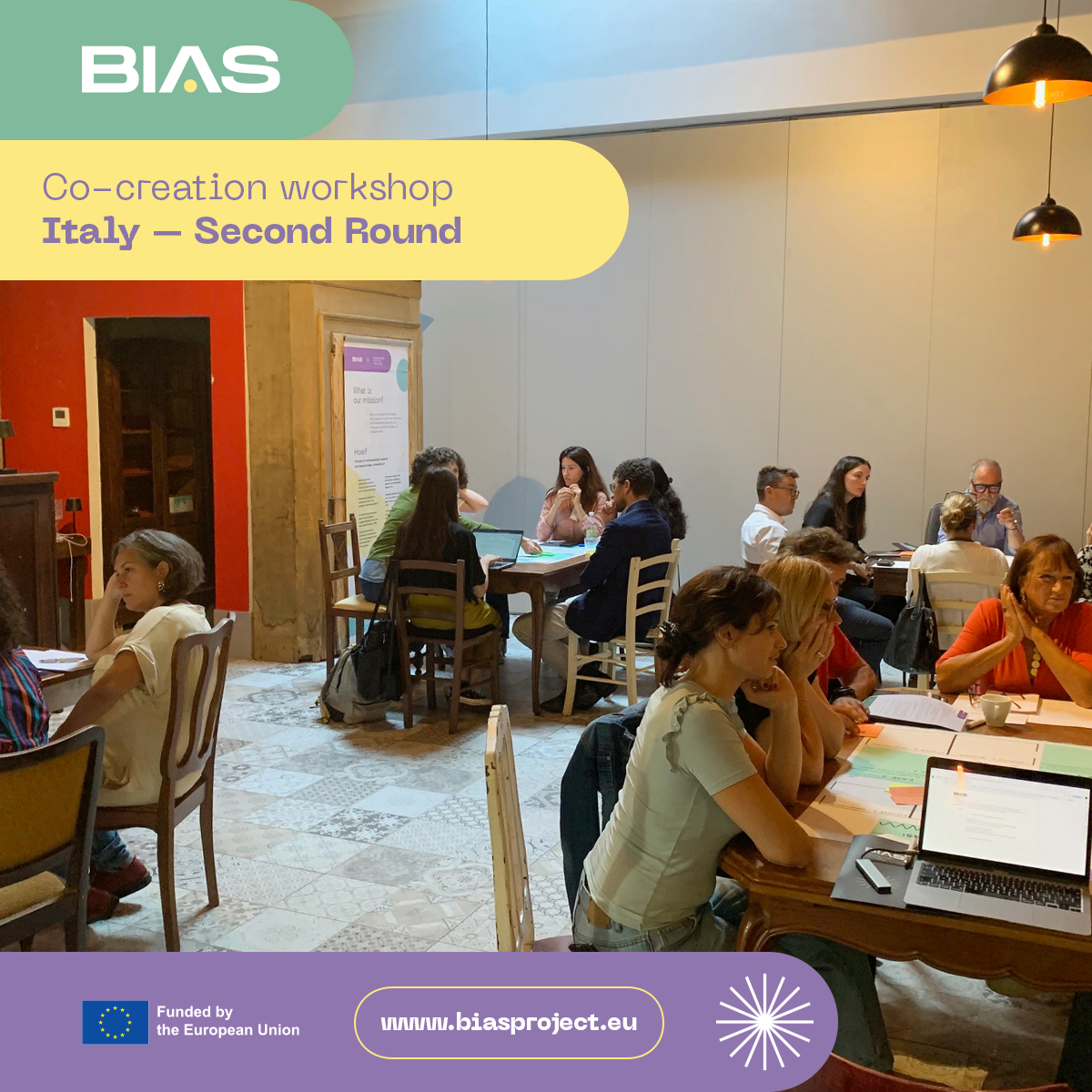10th November 2023
In the picturesque setting of Venice on September 27, 2023, Smart Venice convened a co-creation workshop that brought together 23 participants from various backgrounds to delve into the intricacies of fairness in the initial stages of recruitment processes. Among the participants were HR officers and networks, AI specialists, representatives of civil society organizations, legal and human rights experts, as well as philosophers. This concise article summarizes the key insights and discussions from the event.
The workshop had two primary objectives:
During the first activity titled “What does a fair HR recruitment process look like?” participants were divided into two balanced groups to explore the concepts of “objectivity” and “consistency” while reflecting on fair recruitment processes using a scenario and three personas.
The consensus among participants was clear: objectivity is vital in the screening process. However, they acknowledged the challenges of achieving complete objectivity and stressed the importance of combining it with a holistic assessment of candidates. The inclusion of diverse panels and involving employees from different areas were deemed essential. Multiple perspectives help mitigate bias and ensure well-informed decisions in the recruitment process. However, legal experts and AI specialists highlighted the necessity of debiasing tools while underscoring the associated privacy risks. Ensuring privacy protection and adherence to ethical guidelines is imperative during tool development. The debate surrounding overqualified candidates illustrated the complexity of assessing qualifications alone. Flexibility and other personal factors also played a role in participants’ assessments. Notably, when non-binary identities were introduced within the personas, it did not elicit specific comments. This might indicate a growing acceptance of diverse identities in recruitment processes.
A philosophical perspective was presented, emphasizing the value of both objectivity and the subjectivity of candidates and recruiters. Soft skills, challenging to evaluate objectively, were recognized as crucial in candidate assessments.
In the second exercise, participants, divided into four groups, had to map out the future state of the recruiter experience during the application screening phase, pinpointing the ideal requirements of an AI-based Debiaser tool. The group work’s scenario revolved around a company searching for an administrative assistant, receiving around 1.000 applications for the position. The existing Applicant Tracking System (ATS) was responsible for administrative tasks, scheduling job interviews, and managing candidates and participants focused on the screening phase of the recruitment process.
